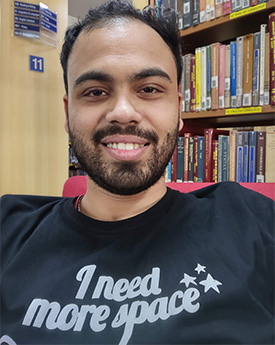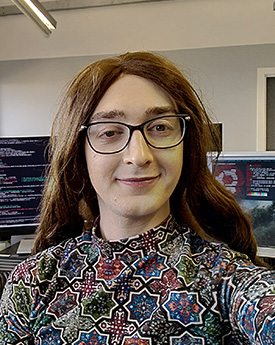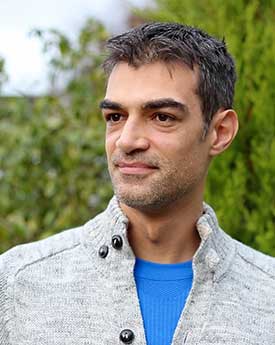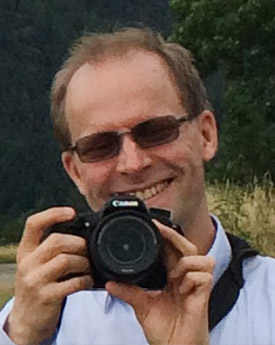Supervisor
Professor Henning Schomerus
Description
Quantum systems can display robust features related to topological properties. These attain precise values that can only change in phase transitions where the states change their topological properties. While the scope of these effects is well understood for electronic and superconducting systems, a much richer range is encountered for open quantum systems. In these systems particles can be created and annihilated, which results in loss, gain, and nonlinearity. Work of the supervisor has demonstrated that topological physics then acquires a much broader scope, followed by experimental demonstrations on a range of physical platforms. In recent years, the study of these systems has become a diverse and active field, resulting in a substantial body of literature on theoretical properties and models, and the identification of novel effects, such as directional amplification and sensing in quantum-limited devices.
What is still missing is a fundamental understanding of the physical scope of many of these discoveries. Most models include the out-of-equilibrium effects phenomenologically, often with the desired effects already in mind. Furthermore, the characterization of the models often uses properties that do not have an immediate physical meaning. This project tackles these questions generally and practically by developing consistent dynamical descriptions that allow to derive and analyse effective models while respecting fundamental physical constraints. The development of this framework will be guided by considering concrete quantum-optical, photonic, and mechanical settings. The project develops analytical and numerical skills in quantum mechanics and dynamics, topology and symmetry, and evaluation of theoretical model systems.
Supervisor
Professor Henning Schomerus
Description
Quantum systems can encode information, but this information quickly becomes inaccessible if the associated degrees of freedom couple to the environment. Systematic measurements offer a way to arrest this undesirable process, but induce an additional source of randomness, and fundamentally change the dynamics of the system.
This project aims at characterizing the resulting dynamics by identifying universal aspects that are independent of the details of the system. This will be approached by including random elements into the dynamics, which make the systems accessible via powerful stochastic methods. Important parts of the project will be to set up suitable models that capture the key physics of relevant systems, and to identify and evaluate quantities that robustly characterize the resulting dynamics. This project develops skills to describe quantum many-body systems analytical and numerically.
Supervisor
Dr Neil Drummond
Description
Positron annihilation spectroscopies are sensitive techniques for characterising both molecules and bulk materials. When a positron annihilates with an electron in a molecule or crystal, the resulting gamma rays carry information about the local electronic structure; e.g., the positron lifetime depends on the electronic density, while the momentum distribution of the outgoing radiation depends on the electronic momentum distribution. However, positrons significantly perturb the electronic structure of the molecules to which they bind. Hence experimental positron annihilation studies rely on computational modelling to interpret the results produced.
In this project you will develop and apply quantum Monte Carlo methods for solving the many-body Schroedinger equation for positronic molecules and bulk materials to produce data that will facilitate the interpretation of positron annihilation experiments. The work will involve developing and implementing appropriate forms of trial many-body wave function and investigating the effects of nuclear motion on positronic molecules.
The project is of a theoretical and computational nature, and is suited to a student with interests in numerical modelling, scientific computer programming, materials science, and quantum mechanics.
Supervisor
Dr Neil Drummond
Description
The variational and diffusion quantum Monte Carlo (VMC and
DMC) methods are powerful and accurate techniques for solving the many-body time-independent Schroedinger equation. They are widely used in condensed matter physics and quantum chemistry to simulate the behaviour of electrons so that we can predict and understand the electronic, optical and chemical properties of molecules, materials and semiconductor devices.
The VMC and DMC methods rely on the availability of accurate and flexible many-body wave-function forms. Typical VMC and DMC calculations use Slater determinants of single-particle orbitals, multiplied by an envelope function called a Jastrow factor, with the single-particle orbitals being evaluated at points offset from the actual particle positions by a so-called backflow displacement. Both the Jastrow factor and the backflow displacement are parameterised, symmetric functions of all the particle positions.
In this project the goal is to investigate new approaches for producing appropriate trial wave functions for many-body fermionic systems by including long-range multibody terms and neural network functions of particle positions in the backflow displacement. The aim is to produce highly accurate wave-function forms that can be used to study systems of hundreds of particles. The variational principle of quantum mechanics provides the crucial measure of wave-function quality, with more accurate wave functions giving lower energy expectation values. The use of better wave functions will increase the accuracy of quantum Monte Carlo calculations of structural, optical and vibrational properties of molecules and bulk materials; these predictions can be compared with experimental measurements.
For few-body systems such as light atoms and very small molecules it will also be possible to obtain benchmark results by explicitly antisymmetrising many-body wave functions of Jastrow form. This approach can be used to study the ground-state properties of small molecules in which nuclear motion is treated on an equal footing with electronic motion, allowing a comparison of near-exact nonrelativistic quantum mechanical calculations with experiment. Such calculations could also be performed for positronic molecules to calculate positron lifetimes and hence to support positron annihilation spectroscopic measurements.
It will be interesting to compare these two approaches for generating accurate wave function forms for small molecules.
This project is theoretical and computational in nature, requiring strong computer programming skills.
Supervisor
Professor Edward McCann
Description
Parafermions are fascinating generalisations of fermions with exclusion statistics intermediate between fermions and bosons, and they may provide a platform for future topological quantum computing. The algebra of parafermionic creation and annihilation operators is nonlinear, making the modelling of parafermionic tight-binding lattices (parafermions hopping along a chain of localised orbitals) more challenging than that of fermions. The aim of the project is to model the properties of these parafermions including the role of disorder and interactions, and the response to external fields. This project develops analytical skills in quantum mechanics as well as numerical modelling skills.
Supervisor
Professor Janne Ruostekoski
Description
We invite applications for a PhD project theoretically exploring the quantum and collective optical response of atomic media and other structured light–matter systems.
One of the success stories of quantum physics is how individual quantum particles have been controlled and manipulated by light. This forms the underpinning science for the emerging quantum technologies However, the realisation of a fully controllable, strongly interacting and coherent quantum system, consisting of many particles, is an outstanding challenge. A new frontier of quantum physics has recently emerged utilising photons coupled collectively to quantum atomic gases, such as Bose-Einstein condensates and atoms trapped in optical lattice potentials. These cold atomic gases cooperatively coupled with light provide a rich strongly interacting quantum many-body system. Long-range interactions between atoms occur through exchange of photons.
The research will focus on microscopic and first-principles modelling of light scattering in atomic lattices, with potential applications ranging from negative refraction and epsilon-near-zero behaviour to quantum control of light–matter interactions. The work will combine theoretical and computational techniques to investigate how macroscopic optical phenomena emerge from microscopic quantum or classical scatterers, contributing to new regimes of synthetic atomic materials and quantum technologies.















